Vaping Laws in Mexico – Is It Legal to Vape in Mexico?
Vaping has become increasingly popular in Mexico, leading to the introduction of new regulations for the sale and use of e-cigarettes and vaping products. In this article, we will explore the vaping laws in Mexico and provide a comprehensive overview of the legal framework surrounding vaping in the country.
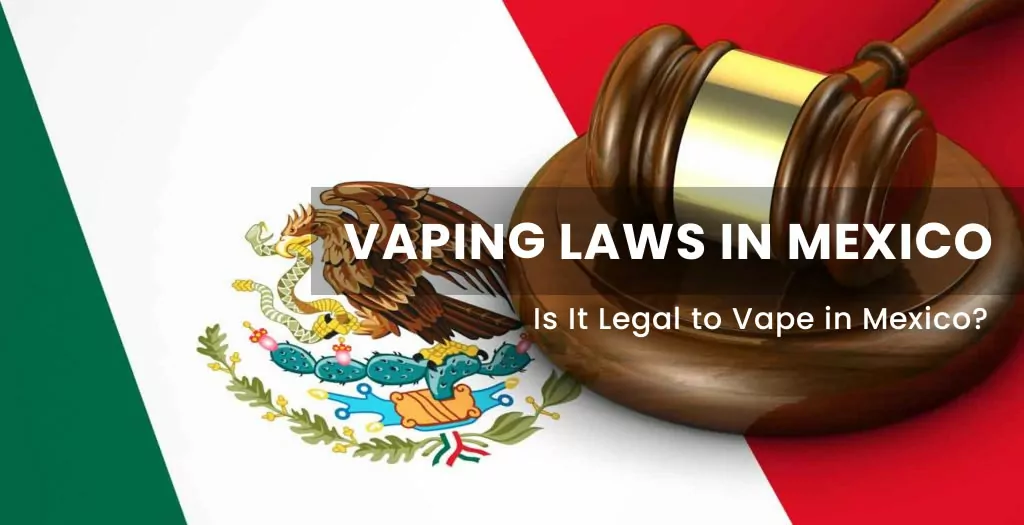
Introduction to Vaping Regulations in Mexico
Vaping has been a popular activity in Mexico for years, with an estimated 1 million people using e-cigarettes regularly in 2017. However, despite its popularity, the commercialization of vaping devices has always been technically illegal in the country. The lack of regulation has led to an unregulated market, which has its own set of challenges.
In 2015, the Supreme Court of Mexico ruled that the prohibition of vapes is unconstitutional, which was a hopeful sign for vapers that the government would finally establish a regulated vaping market. Unfortunately, non-regulation has continued to prevail, and the vaping industry in Mexico remains unregulated.
The lack of regulation has both positive and negative implications for vapers in Mexico. On one hand, vapers have access to a wide range of products, flavors, and devices. On the other hand, the lack of regulation means that there are no guarantees regarding product safety or quality. This puts vapers at risk of using low-quality or even dangerous vaping products.
The Mexican government has recognized the need for regulations to ensure the safety of vaping products and protect the health of consumers. In 2020, the government released draft regulations for vaping products, which would establish minimum quality and safety standards for vaping devices and e-liquids. The regulations would also require manufacturers to obtain permits and submit products for testing and certification.
However, the proposed regulations have faced significant opposition from the vaping industry, which argues that the regulations would stifle innovation and hurt small businesses. The debate over vaping regulations in Mexico is ongoing, and it remains to be seen how the issue will be resolved.
In the meantime, vapers in Mexico must navigate the unregulated market carefully, being mindful of the potential risks associated with using untested and unregulated vaping products. It is recommended that vapers only purchase products from reputable vape manufacturers and retailers, and that they educate themselves about the potential risks and benefits of vaping.
Overall, the lack of regulation in the vaping industry in Mexico presents both opportunities and challenges for vapers. While the unregulated market provides access to a wide range of products and flavors, it also puts consumers at risk. As the debate over vaping regulations in Mexico continues, it is important for vapers to stay informed and advocate for regulations that prioritize safety and quality.
Vaping Laws in Mexico
The Federal Commission for the Protection Against Sanitary Risks (Cofepris) issued a warning about the health risks associated with electronic cigarettes, particularly those containing vitamin E acetate. And then on May 31 / 2022, World No Smoking Day, the World Health Organization (WHO) awarded President Andrés Manuel López Obrador (AMLO) a prize, which was followed by his enactment of a decree on electronic nicotine delivery systems (ENDS) the next day.
The decree includes the following orders:
- Prohibiting the importation of electronic cigarettes, vaporizers, and any device that heats or delivers nicotine or other substances through inhalation.
- Banning the use of electronic cigarettes and vaporizers in all enclosed spaces, including public transport, offices, and restaurants.
- Prohibiting the sale, distribution, and promotion of electronic cigarettes and vaporizers.
- Implementing a national information and awareness campaign on the risks associated with electronic cigarettes and vaporizers.
This was AMLO’s fifth relevant decree since he became president in 2018, and it was viewed as another attempt to push his prohibitionist agenda without proper regulation. Although some media outlets framed the decree as a total ban on e-cigarette sales, it was better understood as part of a larger effort to pressure the Mexican government into prohibition rather than regulation.
The decree aims to protect public health by regulating the use and sale of electronic cigarettes and vaporizers. However, the vaping community in Mexico has criticized the decree, arguing that it will lead to a black market for these products and increase the use of unregulated devices. The ban on the importation of electronic cigarettes and vaporizers has also raised concerns among consumers who rely on these devices as a smoking cessation aid.
Despite the criticism, the Mexican government has defended its decision, stating that the health risks associated with electronic cigarettes and vaporizers are well-documented and that the ban is necessary to protect public health. The government has also announced plans to work with the vaping industry to develop a regulatory framework that balances the needs of consumers with public health concerns.
Age Restrictions
The legal age for purchasing and using vaping products in Mexico is 18 years old. Any store that sells e-cigarettes to minors can face fines or even closure.
Vaping in Public Spaces
Mexico has banned the use of e-cigarettes in all enclosed public spaces, including bars, restaurants, and workplaces. This means that vapers must step outside to use their devices.
These are the places where you can’t smoke / vape:
-
- Event rooms.
- Rooms and areas with access to the general public or common use of hotels and other lodging sites.
- Patios, terraces and balconies from anywhere with public access.
- Amusement parks.
- Playgrounds or places where children and adolescents stay or congregate.
- Urban development parks.
- Sports.
- Beaches.
- Entertainment and entertainment centers.
- Courts, stadiums and arenas.
- Shopping spaces.
- Markets.
- Hotels.
- Hospitals, health centers and medical clinics.
- Places of religious worship.
- Places of consumption or service of food or drinks.
- Transport stops.
- Public transport.
- Schools
- Workplaces.
- Government offices.
- Public areas of prisons and detention centers.
Smoking areas can be established but under the following regulations:
-
- Be physically separated and incommunicado from spaces 100% smoke-free and not be a must for people.
- They must be located 10 meters away from the entrances, accesses and exits of the buildings and the air intake ducts.
- Smoking areas should not occupy more than 10% of the total area of the establishment.
- They will have the signage that prohibits the entry of minors and graphic health warnings about the health effects and damage of exposure to tobacco smoke.
Advertising Restrictions
Mexico prohibits the advertising and promotion of vaping products through any media, including television, radio, and online platforms. Manufacturers and distributors can face hefty fines for violating this law.
Manufacturing and Sale of Vaping Products
Mexico has strict regulations on the manufacturing and sale of vaping products. Vaping devices and e-liquids must comply with the standards set by the Federal Commission for Protection against Sanitary Risks (COFEPRIS) before they can be sold in the country.
If companies are looking to enter the Mexican market for vaping products, it may be worthwhile to consider local manufacturing as the regulatory landscape evolves. With the recent ruling that the prohibition of vapes is unconstitutional, individuals or their legal representatives can compel COFEPRIS to respond to applications or justify rejections through the use of amparo actions. These actions would involve a request to federal courts to allow individual activities while awaiting a ruling. Several arguments can be made in favor of such actions, and it is worth noting that all amparos filed in this area to date have been resolved in favor of the plaintiff.
Importing Vaping Products
Mexico allows the importation of vaping products for personal use. However, there are restrictions on the quantity of e-cigarettes and e-liquids that can be brought into the country. The importation of e-cigarettes for commercial purposes is prohibited.
Penalties for Violating Vaping Laws in Mexico
The penalties for violating vaping laws in Mexico can be severe. Individuals caught using e-cigarettes in enclosed public spaces can face fines of up to $300 USD. Stores caught selling vaping products to minors can be fined up to $2,000 USD or even closed down. Manufacturers and distributors who violate advertising restrictions can be fined up to $8,000 USD.
Conclusion
The vaping industry in Mexico is still in its infancy, and the recent ban on electronic cigarettes and vaporizers has created uncertainty for both consumers and businesses. However, the Mexican government’s decision to prioritize public health over the interests of the vaping industry is in line with the global trend towards greater regulation of these products. As the debate over the health risks and benefits of vaping continues, it remains to be seen how the vaping industry will evolve in Mexico and around the world.
FAQs
Can I bring my vaping device to Mexico?
Yes, you can bring your vaping device to Mexico for personal use, but it really depends on the customs agent you meet. This country now has one of the world’s strictest anti-tobacco laws, the only legal place to smoke / vape in Mexico is inside private homes or private outdoor spaces.
A person posted their personal account on Quora on January 22, 2023, about traveling to Mexico with a vape pen.
I just flew into Mexico from Orlando I landed at Cancun International Airport and had an electronic cigarette (vape) in my carry on bag. Everyone told me they were not allowed in the country, flight attendants said if found by customs I would face a 3,000$ fine and wouldn’t be able to enter the country until the fine was paid.
I took it off the plane, got through customs (passport checking part) and was asked by one Cancun airport attendant if I had anything to declare. I said no and continued figuring I’d ditch the vape last minute in the case we went through security. To my surprise, I got my checked bag and left with my vape still on me. HAHA. This was as of 01/21/2023 so do this at your own risk but all went well for me.
Must be something to assist in getting money from tourists because they’re selling them at my resort.
THIS WAS ENTERING THE COUNTRY FROM THE STATES!
I do not plan on going back home with the vape in my luggage. If you’re coming, I suggest some Zyn nicotine pouches or nicotine gum just to alleviate some anxiety because the problem seems to be about the electronic cigarettes specifically. Good luck to you all.
Can I vape in bars and restaurants in Mexico?
No, Mexico has banned the use of e-cigarettes in all enclosed public spaces, including bars, restaurants, and workplaces (Check details in the article).
Can You Buy Vape Pen And E-Juice In Mexico?
Yes, vape pens and e-juice are available for purchase in Mexico, especially in popular tourist areas like Cancun. Despite being technically illegal to import, they remain popular among Mexican vapers. In fact, they may even be more affordable in Mexico compared to other countries. So if you’re traveling to Mexico and are a vaper, you can still indulge in your hobby without worry. Just be sure to check the regulations and restrictions in the area where you plan to use your vape pen to avoid any legal trouble.
What is the legal age for purchasing vaping products in Mexico?
The legal age for purchasing vaping products in Mexico is 18 years old.
Can vaping products be advertised in Mexico?
No, Mexico prohibits the advertising and promotion of vaping products through any media, including television, radio, and online platforms.
What are the penalties for violating vaping laws in Mexico?
Individuals caught using e-cigarettes in enclosed public spaces can face fines of up to $300 USD. Stores caught selling vaping products to minors can be fined up to $2,000 USD or even closed down. Manufacturers and distributors who violate advertising restrictions can be fined up to $8,000 USD.
Are there any quality standards for vaping products in Mexico?
Yes, the Federal Commission for Protection against Sanitary Risks (COFEPRIS) sets standards for vaping devices and e-liquids that must be met before they can be sold in the country. In conclusion, vaping laws in Mexico are aimed at minimizing the potential health risks associated with e-cigarettes. It’s important for vapers to follow these regulations to avoid severe penalties. As vaping continues to gain popularity around the world, it’s likely that more countries will introduce similar regulatory frameworks to ensure the safety of their citizens.
- Guide to Quitting Vaping: Proven Strategies for Success - July 23, 2024
- TRPR and TPD UK Regulations for Vaping Devices and E-Liquids - July 23, 2024
- Guide to the New Tobacco and Vape Regulations in Romania - July 23, 2024
Related posts:
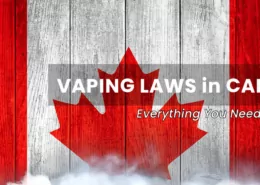 Vaping Laws in Canada – Everything You Need to Know
Vaping Laws in Canada – Everything You Need to Know
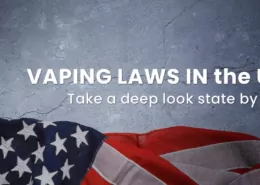 Vaping Laws in the U.S. by State
Vaping Laws in the U.S. by State
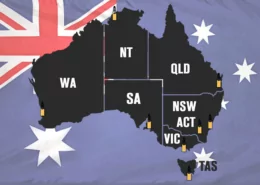 Australia Vaping Laws – Is Vaping Illegal in Australia
Australia Vaping Laws – Is Vaping Illegal in Australia
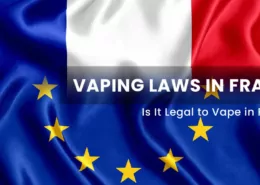 Vaping Laws in France – Is it Legal to Vape in France?
Vaping Laws in France – Is it Legal to Vape in France?
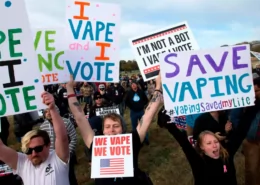 Vape Bans: Exploring the Vape Regulations in U.S. and Worldwide
Vape Bans: Exploring the Vape Regulations in U.S. and Worldwide
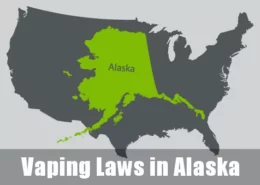 Vaping Laws in Alaska – Is it Legal to Vape in Alaska?
Vaping Laws in Alaska – Is it Legal to Vape in Alaska?


